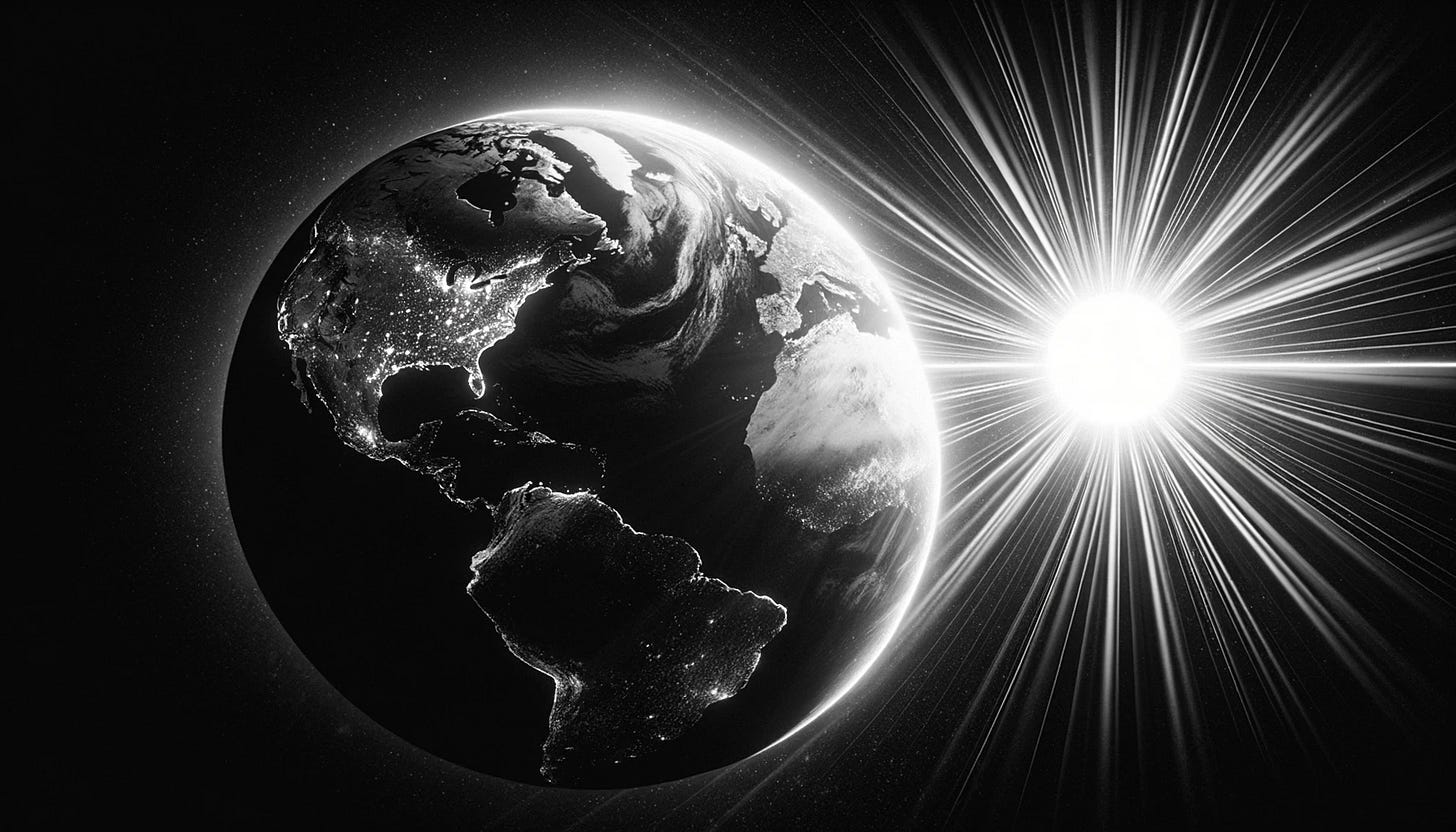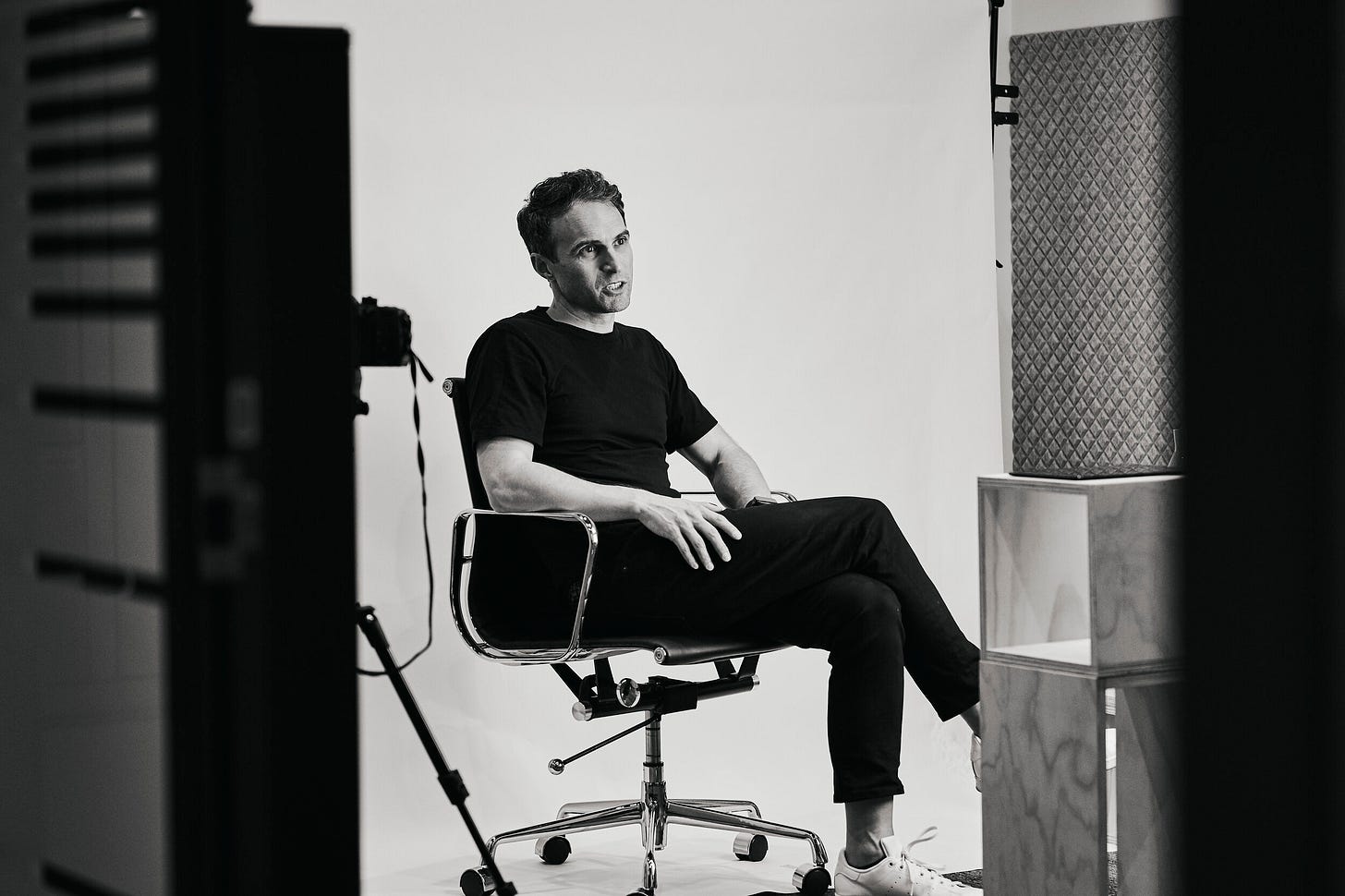Mind's Clockwork: How Our Brains Understand Time
Curated, Science-Driven Insights into the Brain.
Future Minds is a weekly newsletter that breaks down the science of the mind and brain into short and easy-to-digest insights and actionable take-homes. So if you are not already a subscriber, sign up and join the many others who receive it directly in their inbox each week — it’s free.
Hi, everyone, I trust you're all doing well. At breakfast one morning, one of my kids asked me "When is Christmas, Dad?". In our household, we've found that talking about time in terms of full moons makes more sense to the little ones than months or weeks. Upon hearing it was still one full moon away, a small sigh and a look of longing spread across my child's face, the wait seemingly an eternity in his eyes.
It's moments like these that remind us how our perception of time can differ so much, not just from one person to another, but across different ages and stages of understanding. Such is the perfect segue into our discussion in this Newsletter about the fascinating concept of Time Perception. Enjoy!
At a glance:
Time perception is subjective and influenced by our emotional state, attention, and environment, which can make time feel as though it's moving slowly or quickly.
Neuroscience experiments, like those by David Eagleman, suggest that intense emotions like fear can distort our memory of time, but not perception in the moment, making events seem longer than they were.
Our circadian rhythms, which are in sync with Earth's day and night cycles, govern our feelings of alertness and sleepiness and can be altered by changing our daily habits, highlighting the adaptability of our internal clocks.
Mind's Clockwork: How Our Brains Understand Time
"Time moves slowly, but passes quickly."
Alice Walker
Puzzled by how time can drag on endlessly during a boring lecture, each minute feeling like an hour, yet flies by in the blink of an eye during a gripping movie or a heart-pounding game, leaving you wondering where all the time went? Time, it seems, has a peculiar way of warping around our experiences.
Our brains don’t tick-tock like the innards of a grandfather clock. Instead, our perception of time is a personal and complex experience, affected by our focus, feelings, past experiences, anticipations, and the environment we're in. Our focus on a task can speed up or slow down our perception of time, influenced by emotions—fear can make moments linger; joy can shorten hours. Memories and expectations also shape our perception of time, which is further affected by our environment, proving time's subjective nature in our minds.
A colleague of mine David Eagleman tested whether fear slows our perception of time by having participants read numbers while free falling through the air in an amusement park. They couldn't read any better despite the scare, suggesting their brains didn’t speed up, but the way our brain lays down our memories, not time itself, is different during frightening moments. This suggests that while people might remember a scary event as if it happened in slow motion, in the moment itself, time doesn't slow down. It's just that our memories play tricks on us, making us think it lasted longer than it did.
This brings me to a thought: what if our life's tempo is set not by the ticking of a clock but by the intensity of our emotions? The first kiss, the cold splash of water as you dive into a pool, the grip of the steering wheel in a close call – don't these moments seem to last an eternity? This is the basis of a theory which suggests exactly that! emotion and novelty warp our memories to make life feel longer!
“What if our life's tempo is set not by the ticking of a clock but by the intensity of our emotions?”
The Stopped Clock Illusion
The "stopped clock illusion" is a curious quirk of the mind, where swift glances, called saccades, to and from a clock seem to stretch the first second we observe. This happens because our brains are adept at smoothing out our visual experience, cutting out any blur caused by the rapid movement of our eyes (saccadic suppression). So instead of a smear across our vision when we look away and back at a clock, we get a clear view. But this clear view comes with a trick—our mind stretches this moment, making that second appear to last longer than it does.
Tuning into Our Circadian Rhythms
Lastly, let's not forget the grand conductor of our daily rhythm: the circadian clock. Circadian rhythms are like an internal clock for our bodies, intricately aligned with the spinning of the Earth and the cycle of day and night. This natural rhythm influences when we feel alert and awake or sleepy and ready for bed, responding to the patterns of light we experience.
By changing our regular habits, such as the time we choose to rise in the morning or the hour we settle down at night, we can retrain these rhythms. This flexibility shows us just how responsive our biological systems are to our lifestyles.
Neuro Hacks to make the time fly
Want to play with the tempo of your day? Here's a trio of time-twisting tips:
1. Ditch the Ticker: You know how a watched pot never boils? Time has the same stubbornness. So, if you're itching for hours to pass more quickly, turn your gaze to something—anything—that isn't counting down the minutes.
2. Slice and Dice Your Day: Got a mountain of a task that's making the seconds stagger? Work in short bursts, sandwiched with breaks for fresh air, a snack, or a quick chat about last night's cliff-hanger on your favourite show.
3. Novelty is Your New Best Friend: Shake up your routine with something fresh. Try a new route to work, cook a recipe from a cuisine you can't pronounce, or just rearrange your furniture. New experiences will change the way your memories are made and your day will be remembered as longer!
Mental Meanderings
Do you believe that our perception of time changes as we age? How has your perception of time changed over the years?
How do you think technology affects our perception of time, especially with the constant presence of digital clocks and screens?






I was talking about this with a friend just the other day. I likened a year in my life now to how long summer school holidays seemed when you were young. They went on forever and when you went back to school, many of your schoolmates had grown and it all felt a bit strange.
So, with people putting up decorations in November, shops with Christmas displays everywhere, adverts on TV; for small children Christmas is longer than their summer holidays.
Perspective, perception, practice. I'm not one to constantly look at the clock. Somehow, I modified my habits to bypass looking at the time every time I see a clock. I do look more often when I have a scheduled appointment, but in general, I try to live my day without concern for time.
My perception of time and space is pretty good, though the time change for daylight savings time has been a big challenge. My body was comfortable with the shortened days, it knew when it wanted to eat and sleep. I still feel the same connection to the shortened days, but the clock tells me a different fictional story.
My perspective on time has changed from childhood to adulthood. The holidays come so quickly, weeks pass and I don't feel like I accomplished as much as I wanted to, and a year seems to fly by and yet an hour of something boring or when I'm tired, feels like forever. (Ah, those are clock watching moments, hoping that I can just make it through.)
And holiday corporate advertising through commercials, and product placement in stores feels like a desperate ploy for businesses to make up for a lackluster year. Black Friday was a one day desperate ploy that many people fell for, and now, Black Friday begins the day after Halloween and no longer has meaning to a shopper, except maybe to create a sense of hurry and fomo. I'm happy that I can fast forward through commercials when I record a show, I spend very little time on social media, and I'm practicing a deeper connection to living with the seasons and emulating the natural ebbs and flows of busyness and rest.
This new practice makes it very clear that we humans are out of balance with nature.